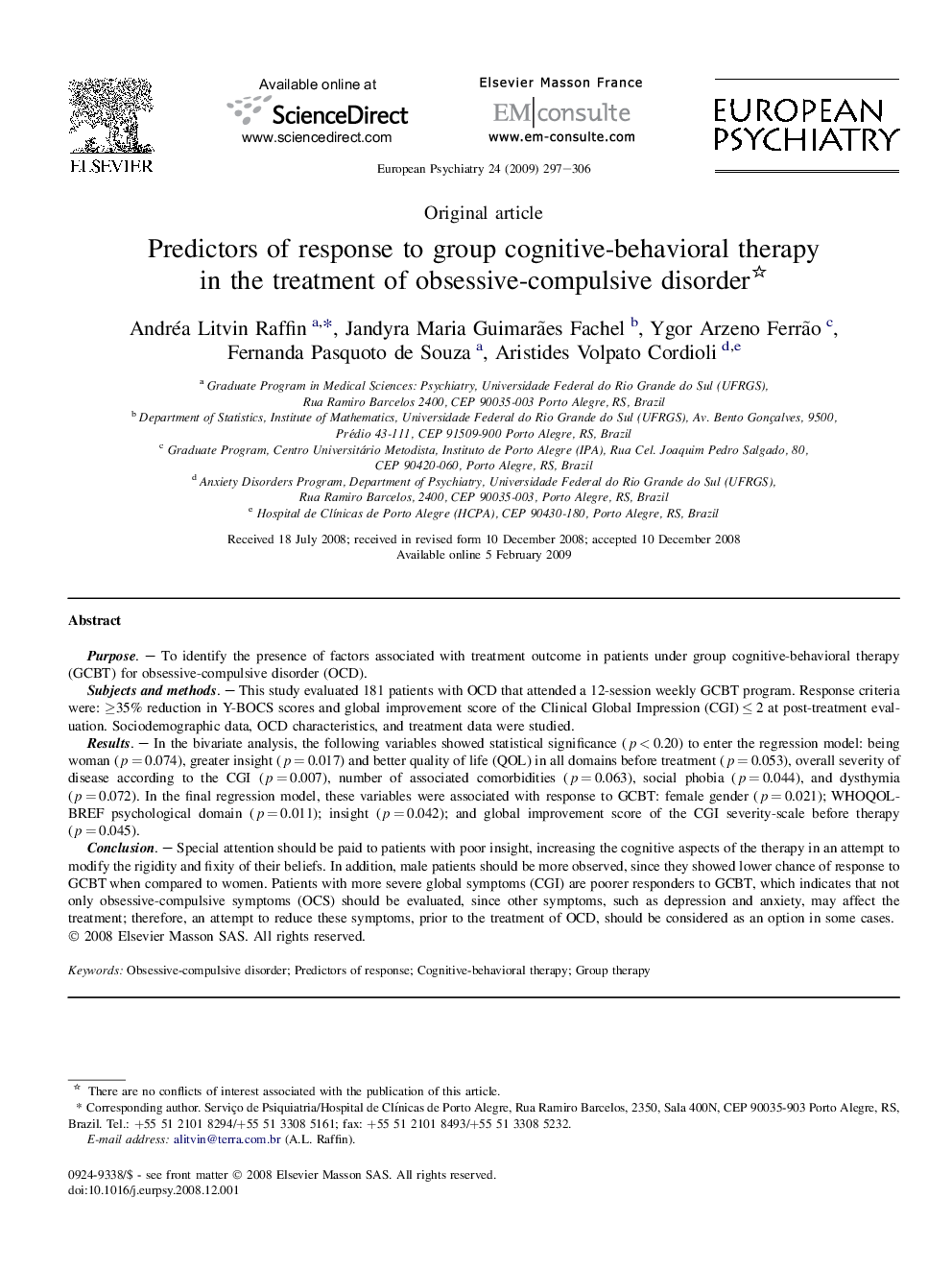| کد مقاله | کد نشریه | سال انتشار | مقاله انگلیسی | نسخه تمام متن |
|---|---|---|---|---|
| 4185133 | 1277345 | 2009 | 10 صفحه PDF | دانلود رایگان |

PurposeTo identify the presence of factors associated with treatment outcome in patients under group cognitive-behavioral therapy (GCBT) for obsessive-compulsive disorder (OCD).Subjects and methodsThis study evaluated 181 patients with OCD that attended a 12-session weekly GCBT program. Response criteria were: ≥35% reduction in Y-BOCS scores and global improvement score of the Clinical Global Impression (CGI) ≤ 2 at post-treatment evaluation. Sociodemographic data, OCD characteristics, and treatment data were studied.ResultsIn the bivariate analysis, the following variables showed statistical significance (p < 0.20) to enter the regression model: being woman (p = 0.074), greater insight (p = 0.017) and better quality of life (QOL) in all domains before treatment (p = 0.053), overall severity of disease according to the CGI (p = 0.007), number of associated comorbidities (p = 0.063), social phobia (p = 0.044), and dysthymia (p = 0.072). In the final regression model, these variables were associated with response to GCBT: female gender (p = 0.021); WHOQOL-BREF psychological domain (p = 0.011); insight (p = 0.042); and global improvement score of the CGI severity-scale before therapy (p = 0.045).ConclusionSpecial attention should be paid to patients with poor insight, increasing the cognitive aspects of the therapy in an attempt to modify the rigidity and fixity of their beliefs. In addition, male patients should be more observed, since they showed lower chance of response to GCBT when compared to women. Patients with more severe global symptoms (CGI) are poorer responders to GCBT, which indicates that not only obsessive-compulsive symptoms (OCS) should be evaluated, since other symptoms, such as depression and anxiety, may affect the treatment; therefore, an attempt to reduce these symptoms, prior to the treatment of OCD, should be considered as an option in some cases.
Journal: European Psychiatry - Volume 24, Issue 5, June 2009, Pages 297–306